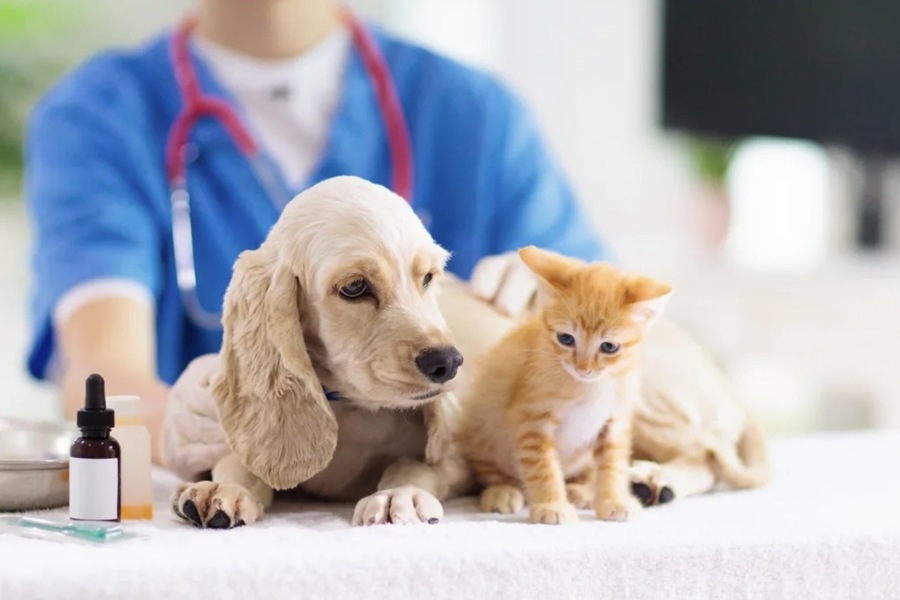The pet care industry is more than just an emotional cornerstone for pet owners; it is a thriving economic sector with significant contributions to national and global economies. From pet food manufacturing to veterinary care and cutting-edge technological solutions, the industry supports ancillary markets, fosters innovation, and generates jobs. In cities like Dubai, where industry is rapidly growing, the economic ripple effect of pet care Dubai highlights its importance as a revenue-generating powerhouse.
Page Content
The Pet Care Industry’s Economic Engine
In 2022, the worldwide pet care industry was estimated to be worth $150 billion. Through 2030, it is expected to increase at a compound annual growth rate (CAGR) of 6%. This strong expansion highlights how important pet care is to economic prosperity. As society moves toward treating pets like family members, pet owners are becoming increasingly willing to spend money on high-end services and goods.
This trend is particularly pronounced in Dubai. The city’s affluent demographic and cosmopolitan culture has spurred demand for high-quality pet services, driving the rapid expansion of the pet care Dubai sector.
Job Creation and Workforce Development
The pet care industry is a significant employer, creating jobs across various sectors:
Veterinary Services: Veterinarians, technicians, and support staff are essential to maintaining pet health.
Retail: From boutique pet stores to online platforms, retail contributes heavily to the job market.
Manufacturing: Pet food and product production, including eco-friendly and premium options, support manufacturing jobs.
Services: Grooming, training, and daycare facilities employ skilled professionals, particularly in urban hubs like Dubai.
According to recent studies, every $1 million spent on pet care supports approximately 12-15 jobs, highlighting the industry’s labor-intensive nature.

Boosting Related Industries
The economic impact of pet care extends beyond its direct participants:
Real Estate: Pet-friendly apartments and communities are increasingly in demand, driving property values and urban planning innovations.
Tourism: Pet-friendly tourism, including hotels and activities, attracts a niche audience willing to spend more for their pets’ comfort.
Tech Development: Innovations like GPS pet trackers, automated feeders, and telehealth platforms for pets are booming, supporting the broader tech ecosystem.
Dubai exemplifies these trends with its luxury pet spas, pet-friendly hotels, and tech-forward pet care services, ensuring the city stays ahead of global pet care trends.
Pet Care as a Driver of Consumer Spending
The average pet owner spends between $500 and $1,500 annually on pet-related expenses, including food, grooming, and veterinary services. In Dubai, this figure is often higher due to the availability of premium and luxury options.
Products like organic pet food and personalized health plans are particularly popular among Dubai’s high-income residents, reflecting a willingness to invest in pet wellness. This consumer spending directly contributes to GDP growth, making pet care a valuable economic asset.
Pet Care and Urban Development
In cities like Dubai, the pet care industry shapes urban development by encouraging the creation of pet-friendly spaces. Public parks, walking trails, and even shopping malls are adapting to accommodate pets, enhancing the quality of life for residents.
These spaces also promote local businesses, from pet cafes to grooming salons, further stimulating economic activity. The focus on pet-friendly infrastructure underscores pet care’s broader societal and financial value.
Statistics: Pet Ownership and Economic Impact
Pet Ownership Trends: Pet ownership in the UAE has risen by 35% over the past decade, with Dubai leading the charge.
Market Size: The UAE pet care market was valued at $361 million in 2022, with Dubai accounting for a substantial share.
Veterinary Spending: Veterinary services constitute about 30% of total pet care spending in Dubai, reflecting the importance of pet health to owners.
Government and Regulatory Support
Governments play a critical role in supporting the pet care industry. Policies promoting animal welfare, regulating pet product quality, and helping small businesses contribute to its growth.
In Dubai, initiatives like stricter pet licensing laws and promoting ethical breeding practices have enhanced industry credibility. These measures protect pets and build consumer trust, encouraging higher spending.

Challenges and Opportunities
Despite its growth, the pet care industry faces challenges, including:
Rising Costs: Premium pet products and services can be prohibitive for some demographics.
Regulatory Hurdles: Navigating different regulations across countries can limit international market growth.
Environmental Concerns: The production of pet products, especially food, raises sustainability issues.
However, these challenges also present opportunities. For example, the rise of eco-friendly pet products and sustainable packaging is reshaping the market, offering new revenue streams.
Dubai’s Role in Shaping the Future of Pet Care
Dubai’s vibrant pet care industry is an example of combining luxury with innovation. The city exemplifies how the pet care sector can revolutionize economies with its upscale pet spas, customized services, and emphasis on pet well-being.
From AI-powered pet diagnostics to digital grooming reservations, Dubai’s concentration on technology demonstrates its dedication to maintaining its lead in this cutthroat industry. As the pet care Dubai market grows, its influence will extend beyond the region, setting global standards for excellence.
Conclusion
The pet care industry is a vital economic driver, contributing to job creation, consumer spending, and urban development. In cities like Dubai, the sector’s growth reflects broader societal shifts toward valuing animal companionship and wellness. As the global pet care market evolves, it will continue to shape economies, drive innovation, and create opportunities across industries. For countries investing in this sector, the returns go beyond monetary gains, enriching communities and enhancing the human-animal bond that underpins it all.
Baseball fan, coffee addict, audiophile, hand letterer and front-end designer. Performing at the crossroads of design and sustainability to develop visual solutions that inform and persuade. My opinions belong to nobody but myself.


